The advancements of technology has made Live videos in social media sites the most significant tool to get your message out there. A global audience is easy to reach through mobile smart devices. But since anyone can hit the Live button on Facebook and Twitter, then there’s the question of how to you set yourself apart from the rest. New York Times bestselling author Joel Comm has mastered Live video marketing with authenticity as the key. Making mistakes live is part of the charm that pulls in viewers, then what you do when it happens makes them come back. Learn how you can build an audience and engage with them and how to monetize your shows.
Helping people sell is very different than helping people buy. When you do the latter, you offer them the opportunity to address their pain points or problems, where their only response is yes. This is Jack Daly’s mantra that makes him different and better. He doesn’t mind spending a lot of time in sales calls where he listens, asks and helps the client put the puzzle pieces together. By creating trust to create his network, Jack was able to sell his companies to Wall Street. Learn more of his different breed of marketing and sales.
We have Joel Comm and Jack Daly. We are going to have a very interesting show. I hope you stay tuned.
Listen to the podcast here
A Different Breed Of Marketing And Sales with Joel Comm
I am with Joel Comm who is an author, keynote speaker, entrepreneur, consultant and the leading voice in Live video marketing. Whether using tools such as Facebook Live, Periscope, Instagram or Snapchat to broadcast a clearly defined message to a receptive audience or leveraging the power of a webinar and meeting technology such as BeLive.tv or Crowdcast. Joel’s tested strategies make him an in-demand speaker and consultant for brands both large and small. He’s a New York Times Bestselling author of fifteen books. It’s nice to have you on the show, Joel.
Hi, Diane.
I’m fascinated in all of the Live things that have come out, the Facebook Live and some of the other ones I’ve mentioned. How did you get to be an expert in all those? Can you just give a background for people?
It’s the same way that I’ve mastered many of the disciplines of my career. I get interested in something. It piques my curiosity. I start playing around with it. If I really enjoy it and I see benefits for building an audience, engaging with an audience, building my business, I tend to stick around. When you stick around long enough, you learn a thing or two and other people start asking you. I didn’t set out to become an expert or a leader in the live video space. That’s just what happens when you spend a lot of time doing it.
I’m with you. If I want to figure out something, I write blogs about it or I’d research because it helps you. I just dive in. I see that you’ve had so much success with so many books. How did you get to be such a big bestseller? What was your first book of all these?
First book was back twenty years ago in 1997. I had started building sites online in 1995, 22 years ago. The first site that I built since I had a young family was called Internet Family Fun: A Parent’s Guide to Safe Surfing. The goal of this particular book was to provide a directory of family-friendly websites but write about them. You don’t do reviews of them. This book came out in 1997. What’s really interesting is if you look at it now, hardly a site that’s in there is still live.
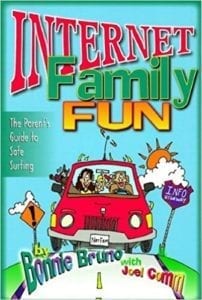
Different Breed Of Marketing And Sales: Internet Family Fun: A Parent’s Guide to Safe Surfing
I imagine that you’ve seen a lot of things change. Weren’t you one of the first people that did Live reality internet stuff?
The first competitive internet reality show was something that I produced ten years ago. That was 2007 and that’s Internet Millionaire. It was a combination of a vision that I had of what would happen if you took a business reality show similar to The Apprentice and brought it to YouTube. We auditioned 300 people. We picked twelve contestants from US, Canada, the UK, and Costa Rica. Flew them in to Colorado for two weeks and we had teachers that were all internet millionaires come in and teach them. They competed against each other. I still can’t believe we pulled it off. Barely but we pulled it off. Got an honorary Webby Awards for it. There’s a DVD box that’s available on Amazon with behind-the-scenes footage.
You’ve been on a lot of television. You’ve been on Jon Stewart Show, even out on so many things. You’re so busy. I’ve worked with Forbes and you’re a contributor to Forbes. You’re everywhere. What did you think is the most interesting show that you’ve been on or where have you liked contributing the most?
It depends. For example, you mentioned Jon Stewart. That was on The Daily Show and that was because of my app that I created for the iPhone, the iFart app. It went to number one in the world in the App Store. I wasn’t in the studio. They did a segment on FOX. There was a competing app called Pull My Finger. When both apps were released, they were initially getting all the publicity and we knocked them completely off the charts. They threatened to sue us for all reasons saying that our marketing was better than theirs essentially. We were linking words to our page like Pull My Finger. There was a legal stink around it and we called their bluff and filed with a federal judge in the State of Colorado to tell them go away. We put out a press release about it. That news broke. It got picked up by a lot of the major publications because it was just such a funny story. That’s how Jon Stewart’s producers got hold of us and did the segment, which you’d probably still find if you look up Daily Show-Joel Comm.
I’m interested in what you’re doing now. You have done so much in the past. I’m curious about Facebook Live and some of the newer ways that people connect. Everybody can have their own TV shows and radio shows and podcasts and different ways that we can reach everybody now. What do you think of how it’s changed? What do you think of the potential for people to have their own shows?
[Tweet “Live video is the most significant development in social media since the invention of the smartphone. “]I feel like Live video is the most significant development in social media since the invention of the smartphone. I really do because it’s the most authentic form of social. It’s as close as you can get to having a conversation face-to-face with somebody, when you can be online and in a room where you’re interviewing somebody or you’re having discussions with multiple people. The playing field is somewhat leveled again because anybody can go on Facebook Live or on Periscope, which is Twitter Live, and hit the Live button and immediately have the opportunity to reach a global audience of installed user base of way over a billion. That’s powerful stuff. It used to be, if you wanted attention, you got to grab a soapbox and go up to the middle of town square, stand on it and grab your megaphone. Today, that megaphone is Facebook. That megaphone is Twitter. That megaphone is Instagram Live. It comes down to, what do you have to say. Can you tell a story that is so compelling and engaging that people will not only want to watch it but that they’ll their friends? That’s what viral marketing really is. That’s the essence of viral marketing: Tell a story so compelling that other people will want to retell it for you.
What I find fascinating about live things is that you can say and do whatever. People are doing bad things in some cases but there are such restrictions on network. You can say anything you want on Facebook Live. How come that’s not restricted?
Because the government hasn’t gotten their hands in it. The SEC has got all communications. Bureau of the government hasn’t gotten their fingers in it yet. It’s a lot harder to mitigate that type of thing when you got millions of people that can go live as apart from a few broadcast channels.
Do you think they’ll back off of the radio stations? How is that a fair thing? I’ve listened to broadcasters on the radio complain about it and you could see why.
The stuff that tends to be entrenched tends to stay; entrenched old ways. Radios are more likely to die first than the SEC changing the rules.
How come LinkedIn doesn’t have a Live yet?
I hope they do soon. They own the technology. They own Skype, which is video conferencing and have for years. I would expect some Live business video channel via LinkedIn.
Viveka von Rosen was on my show and I thought it was Viveka who said that she got some beta version or maybe it was somebody else that was on my show that there was something coming. It would be nice to see something combined with Zoom because I know everybody loves Zoom so much. I can see a lot of potential for that, can’t you?
Yeah. Any platform that they can use to integrate with going live on LinkedIn makes a lot of sense. I don’t know that they need their own new application. I’ve worked with BeLive.tv. I’m a brand ambassador for them because I started using their platform last October 2016 and loved it, and started interviewing people on the platform. What’s great about BeLive is that it’s like Zoom, it’s cool but it’s not made for Facebook. You can push to Facebook, Crowdcast, that I thought was cool but it’s not made for Facebook. You can just push to Facebook. BeLive.tv is integrated. It’s made for Facebook. They have a fourteen-day free trial and it allows you to have a lobby of people that you can bring in and out. It’s got really elegant lower thirds that you can put in ahead of time, custom frames, and custom logo. They have the best integration of comments that I’ve ever seen because as people are commenting on your video that’s showing on Facebook, you can see the comments in the BeLive interface. When you click one, it shows on screen with the little profile picture of the person commenting. It looks really nice.
I did a pre-recorded webinar for Forbes where they put it on Facebook. They had somebody taking the questions and then texting them to me. It was like so many people involved that nothing was live. The Live factor fascinates me but have you done things live that you think, “That was not good,” and that you’re sorry it’s out there?
Not really. I’m all about authenticity. I don’t mind making mistakes. I don’t mind if the interview goes sideways. I just poke fun of myself or the technology. I pretty much leave it all out there. One of the reasons is people are scared to go live. They think they have to have their hair on point, their makeup on point. They have to have the set perfect because that’s what people expect when they watch Live broadcasting. They think they need it scripted. None of that is true. I’ll probably be using this example for years because this example is what brought Live the attention of so many people. That is Candace Payne. Do you know who she is?
That doesn’t ring a bell.
Candace decided to go shopping and she came out of the store with something she thought was incredibly novel. She got into her car, didn’t take time to get hair and makeup ready. There’s no script. Over the period of four minutes, she demonstrated this product she bought and blew up as an overnight sensation to the point where she was on Good Morning America and the Today Show. It became an overnight sensation. You might know Candace Payne as Chewbacca Mom. She was the one who took the mask out and was in her car and busted out laughing at how funny this mask was. It had 150 million views and nothing flat with millions of shares and reactions. That happened in three to four-minute live. There she is without a script. She was in the front seat of her car. It’s hardly a set or is it? I’d say it is because it was real. It was authentic. If people let go of their inhibitions and just allow themselves to feel comfortable in their own skin, in their settings, where they are, feeling what they’re thinking and just do it, they’ll find that they’ll have a much better chance of connecting with people because we connect with real people. This is why there’s such an obsession with “reality TV” that we know isn’t completely real but it gives us an alleged glimpse into what’s really happening even though we know it’s produced, even though we know there’s a lot of it that’s scripted. We want to believe that it’s real and people want to connect with what’s real.

Different Breed Of Marketing And Sales: Whatever your business is, your competition will be using live video.
It’s interesting to see what’s happening with all the reality stuff. I have to admit I don’t see a lot of it. I was at a Forbes seminar where Kim Kardashian was there speaking. It was funny to hear Steve Forbes interview her and say, “I was so interested in what Khloe was doing.” He was talking about the storyline. I thought he was kidding but he actually did watch her show to interview her. There are so many people that are getting into this. How do you know who to even watch if everybody’s on Facebook Live? It used to be we had three channels when I was a kid. We were lucky if they came in. How can you stand out? Is this the best time to get into the Live craze? Are we still in the beginning stages that we can be lucky that we’ve started it now or are we passed that? Where are we in it?
We’re still in the early adopter phase. Anytime you can get in before the masses, it’s a good time. There are a lot of people that will dabble with it and never do a second video. There are a lot of people that will never do it, period. Not everybody is going to be good on camera but you may be. It may take some practice and time to get used to doing that but now is better than tomorrow and tomorrow’s better than the day after. Whatever your business is whether you’re a stay-at-home entrepreneur or you have a retail shop or you’re working for a massive corporation, your competition will be using Live video. It’s not a question of if. It is a question of when. Why not beat them to the punch? There are businesses that are able to really take their competition completely off guard and take business from them because they’ve discovered this new tool for going directly to their customer using live video. Succeeding with it is as simple as first doing it, second telling stories and by stories I mean not ‘Once Upon a Time’ stories, and then being consistent and engaging with the people who are watching. The essence of great marketing is telling a story so compelling that others will want to retell it. Have something to say that’s going to make you stand out.
If people want to do Facebook Live, is it like YouTube where you just do a few minutes? How long can you do it?
You can go live for as short as you want but the point of Live is you build an audience. The moment you push the Live button, there are exactly zero people watching you. Notifications have to go out. People have to start commenting for Facebook to pick up, “This person is live.” You build your audience. What Candace Payne did was remarkable in that the recorded video of her Live that went viral. They live on Facebook and they live on Twitter after you’ve done your Lives. I’ll get sometimes more people watching my replays, which is fine. The key is to go live and tell a story as long as it needs to be. When you get to the end of the book, you close the book. When you get to the end of a story, you can either end it or if there are people that are engaging with you making comments, you get to reach through the screen and speak to them individually. That’s one of the things that’s so compelling about live is the engagement that you have with your audience. Now, if it’s just you on, you’re not interviewing somebody face-to-face, if it’s just you, your audience has the opportunity to ask you questions, make comments, to share their thoughts and opinions. You can reach back through the power of this technology and speak directly to them. Now, you’re having a conversation and it’s not just you live, it’s you and your community that are talking about whatever the subject matter is. That’s powerful.
How are they monetizing this? How do you get people there? Can you give some of that background?
Monetizing is you get enough people watching and certainly you can have sponsors that you talk about. There’s times that people will send me equipment, will send me gear and I’ll do unboxings. Sometimes those are paid unboxings where I show what’s in the box and sometimes it’s just to get what’s in the box. That’s one kind of sponsorship. Those that have more viewers can simply insert commercials into their Lives that are consistent with them and their brand. In the beginning, Facebook was starting to pay certain larger brands to produce Live videos. We’re going to have that in the future. People are going to build a career, they’re going to create content on Facebook or Twitter that’s so compelling that either the social platforms themselves are going to want to pay them to keep doing it because they draw eyeballs or some brand who’s going to want to connect with them and maybe put them on a network. People are going to get shows just like we’ve had YouTube celebrities, Instagram celebrities, Snapchat stars. It’s going to happen via live as well. It’s the ultimate Star Search, if you’ll remember that show from many years ago.
What happens to all of your videos after you’ve recorded them? Can you save them somehow?
You can default so that they stay on your wall or your page or your event or your group or wherever it is that you broadcast to. There are ways to download them either directly or indirectly. Facebook does allow a method to do that. There are third-party tool that you can put in links to grab them and download them as well, so you can repurpose your videos. Often times, I’ll do that, especially between interview and I spend the first few minutes of my show welcoming people, asking where they’re from. That doesn’t make for good replay. Getting right into the interview does. I’ll download it and put it in iMovie and chop off all that beginning part. Put some titles on it. Maybe a little intro music and people’s still watching and here’s the interview. For example, I do a show weekly. We’re speaking on my interview day. Every Thursday at 3 Eastern Pacific, I do Joel.live, which is a show that I use BeLive.tv to broadcast to Facebook and I interview business, social entrepreneurial leaders. We talk about whatever I find interesting and they find interesting. I’ll pull down those interviews and repurpose them.
Do you take some of your Facebook Live and repurpose them over to YouTube or do you keep everything on Facebook?
To give you the ultimate repurposing, I was doing a series on Periscope, which is Twitter Live. I did 50 of them called The Top 5 Scope, where I would just go through the top five of whatever it was. Top five of bands of mine, top five ways to sell more, whatever was on my mind. I would do them on Periscope. I would then download them. I’d edit them in iMovie. I’d upload the finished product on Facebook as a finished video. I’d put them on YouTube. I would embed that YouTube video into my blog and make a new post there. I took that same video and made it a podcast on iTunes. There are a lot of different things you can do to create your content one time and use it many.
[Tweet “The essence of great marketing is telling a story so compelling that others will want to retell it.”]It’s just finding the time of the day to do all that. That’s the hardest part for me at least because there’s so much. There are so many places you can put things and there are so many ways you can use things. It’s gets to be a lot going on. I’m fascinated by everything you do and I’m sure a lot of people want to know more about how they can find your information. You’ve mentioned a couple things that you do but how could people reach you and what websites do you want to share?
Since we’ve done quite a bit of conversation around Live video, I’ve got a free gift for your listeners. It’s The Live Video Playbook. It’s an eight-step guide, a beautiful PDF that will take you from complete beginner to hero with online video. Just follow the eight steps in there and you can get it for free at LVPlaybook.com.
I’m definitely going to download that and see what you have to say. This has been so much fun, Joel.
Thanks.
You’re welcome.
A Different Breed Of Marketing And Sales with Jack Daly
I am with Jack Daly who’s an expert in sales and sales management, inspiring audiences to take action in customer loyalty and personal motivation. He delivers explosive keynote and general session presentations and brings 30 plus years of field proven experience from a starting base with CPA firm Arthur Andersen to the CEO level of several national companies. Jack is a proven CEO/entrepreneur, having built six companies into national firms, two of which he subsequently sold to Wall Street firms of Salomon Brothers and First Boston. Jack’s the bestselling author of Hyper Sales Growth. So nice to have you here, Jack.
I am so delighted to be here and share some things with your audience, Diane. Thanks for having me.
I love talking to salespeople because I can totally relate. I was watching one of your videos where you said you interviewed 200 people in your thirteenth year. I was thinking, “I’ve interviewed about that many since March.” How does that even come to your mind to want to do that at age thirteen? Tell me a little bit about your back-story.
I’m the oldest of five kids and we grew up in a family that wasn’t far from poor. At thirteen, I had already built a newspaper route that was so large that I had hired five kids to deliver the papers for me. I was keeping 70% of the revenue from the deal. I had time on my hands so I became a caddie at a private country club. I noticed that the guys were playing golf during the weekdays. They were driving nice cars and they were living in big homes. That’s none of what I experienced in my family. I said, “If I had a choice to be my guy who was working seven days a week to put clothes on his kids and meals on the table or these guys playing golf and nice cars and big houses, I know which way I would go.” If I try to get in their office and asked how they pulled it off, they probably wouldn’t entertain me, but they came to my office. It’s called the golf course and they walk beside me for four hours. I just picked their brains for four hours asking questions about how they became successful.
It’s amazing to hear these stories of people that know what they want at such a young age. If you started selling at the age of seven and all the things that you say, you obviously had that type of background. Is there anyone else in your family interested in sales or was this something unique to you?
Unique to me. In fact, all my brothers and sisters are still alive. We’re in our 50’s and 60’s. Three of the four of them are delivering mail with a mailbag around their shoulder for the US Postal Service. I’m the outlier.
There’s always going to be one. I’m the outlier for what I’m interested in, in my family. It’s funny to see how you can all grow up with the same parental influences and yet to be so different. You’ve obviously been very successful. To sell your companies to the Wall Street, how did that come about?
Between the ages of 26 and 46 years old, I took a blank sheet of paper six times and visualized the company, drew it and all six went nationwide. I built them to be sold. I never wanted to keep them. Most of them, I had a pretty good idea who I wanted to sell them to. Before I even got started, I started building in the attractive bells and whistles into the company to attract the buyers that I wanted to sell to. All six companies were in the money business and it was a very natural conversion to sell them to investment bankers who are buying some of my products and have gotten used to me. Eventually, we got around to discussing and sometimes they would even offer and say, “Instead of buying this stuff from you, I ought to just buy your company.” I would just laugh and say, “I never thought about that,” and off we went.
You didn’t want to keep them. You knew that right off the bat. You knew you want to be a serial entrepreneur. What were those attractive bells and whistles?
What I think I’m really good at is the visioning piece. Let’s say it’s nine balls in the air simultaneously and not have any of them drop. I love the uncertainty of the morning and what’s going to bring to me throughout the day. I love being on the high wire without the net. When businesses start to get formed and become somewhat same from day to day, that’s probably a better arena for another guy to play in. That’s not my cup of tea. I just know who I am and I played to my strengths and move on in life. I love the whole entrepreneurial startup as a game.
[Tweet “Anybody who’s had success in business that tells you they haven’t had failures is blackout lying. “]How do you sleep with that? Does it bother you that if things could all crash and all the balls come falling down one day? Is there any of that worry ever?
I’m in Boston now. I live at the beach in Southern California and I spoke to a group of business owners. There were about 30 of them. I told this story about borrowing from a group of banks. Twenty banks went into the same deal and I borrowed $500 million to build one of my companies. My mom, remember coming from a relatively poor family, she came out and visited this very ostentatious home I was living in at the time. She said, “Are you doing illegal things to build your company?” because that’s the frame of reference she gets. I said, “No, let me explain to you. I spent a year nurturing relationships with these banks so that they could lend me collectively $500 million.” She turned to me and said, “You owe people $500 million? How do you sleep at night?” I said, “I sleep fine. If you’re worrying about people losing sleep, worry about the twenty people that lend me the money.” All I would say is, “I’m sorry. I can’t pay you back,” and I would go do something else in life.
That’s a very nice, healthy related attitude to be calm like that. That’s a lot. I could understand your mom’s concern maybe because it is a lot of money.
There’s consistency on my behavior. I jump the world’s largest bungee jump on eight and a half seconds before your snatch. That’s a long time. I hang glided above the Christ the Redeemer and landed on the Ipanema Beach in Rio. I’ve swam with the great white sharks in Southeast of Africa. I love being on the tight rope and I love the edge.
How about ropeless rock climbing, is that on your list?
I’ve done some rock climbing. I’m just not very good at it. I’m a marathoner. I’ve done 89 marathons. Pikes Peak I’ve done twice, which was 14,115 above sea level. That was the halfway point then you ran back down. I’ve done that twice. Being on the edge of all things is just a part of me and building a company from scratch is absolutely dealing with being on the edge.
Have you had any failures?
Anybody who’s had success in business that tells you they haven’t had failures is blackout lying. In 1998, our company that we build was Inc. number 10 on the Inc. 500 with 10,000, 100% growth. We were also honored by Ernst & Young as Entrepreneur of the Year. We were making in that company $1million dollars a month in pre-cash earnings. One year later, I stood in front of 275 of our total employee count and I let 240 people go in a single day. We went from making a million to losing a million a month overnight because of cataclysmic things in the environment out there and we just didn’t protect ourselves from the environment that potentially could be there. We didn’t measure the risks accurately. We got full of ourselves and we kept going and growing. We got whacked. I had a choice of bankruptcy or take it down to a level that I’ll rebuild it and refocus my energies in another line and rely on the best of the people that we have in the house.
Since you seem to sleep well, did you sleep well when that was happening? Does that keep you up at night?
My wife’s name is Bonnie. I was sixteen. She was fifteen when we met. We’ve been married for 47 years. If she were on this interview, she would tell you that I fall asleep in the middle of a sentence at night because I am so exhausted and when I wake up in the morning, I finish the sentence. I’ve had people that I shared a room with when I’m travelling on business and they literally went in to the bathroom to get ready to go to bed. When they came out, they checked to see if I was breathing.
Do you only sleep a few hours at night? Are you that guy or do you do an eight-hour a night?
My wife doesn’t like me to share this, but I worked really, really hard to improve my sleeping. I’m now up to six hours. I used to be a four-hour sleep guy. I’d like all four together but if I can get two hours back-to-back and two a nap, I still function well. I hate going to bed at night and I can’t wait to get up in the morning. I love life.
I’m very envious of people who can do without sleep because I’m not one of them. I’m very energetic and I’d fly out of bed in the morning and I’d work like you do. I can’t do the four-hour thing. That would kill me.
When you get an opportunity, go to my website JackDaly.net. There’s a tab on the website called Life by Design and all of my personal goals are posted on there. All of my bucket list is on there. My bucket list is over 300 items of which over 200 are completed. There’s a report on what I call the board of directors of my life who hold me accountable to my goals on how I’m doing quarterly and annually. When you go through that material, you will say, “When does this man sleep?” It’s so over the top. 89 marathons, 250,000 air miles a year, 15 full Ironmans. In the last three years, I’ve written the number one best-selling business book on Amazon in three consecutive years.
Do you have to drink a lot of coffee or you’re just up and out?
I’ve never had a cup of coffee in my life. The people who know me are like nor should I. I’ve never smoked a cigarette. I grew up during the ‘60s. I’ve never experimented with drugs. I’m the Boy Scout, clean guy. If I’m looking for vice, I have a wine cellar in my home with 1,000 bottles there and I love living in my wine cellar. I don’t need a Red Bull or something to get going.

Different Breed Of Marketing And Sales: 98 out of 100 companies don’t have a sales playbook, which means every salesperson is making it up and doing it their own way.
You’ve got this bucket list. If you’ve done all these things and you’ve done 200 of the 300, I’m sure you’ve run with the bulls and the mud thing that everybody runs through obstacle course. You’ve done all those?
I got ‘to run with the bulls’ on the list but I have not checked that off yet. What I checked off was I wanted to fly a jet fighter plane. A guy went on my website and saw it and sent me a picture of a jet fighter plane that he bought from the US Air Force. We exchanged back and forth for a year where we were, and we found ourselves in the same city one day. He pulled up and I met him for the first time. He handed me a helmet, put me on a seat behind him and off I went. We did rolls. We did barrel rolls. We did 360s. After all the acrobatics, he said to me in my helmet, “Are you ready?” I’m like, “Ready? I thought that we’re already done?” He said, “No, you wanted to fly one of these. I’m giving you the stick” and off we went, and I flew the damn thing. It’s very thrilling.
If you want to talk about a bucket list and things I haven’t done, I’ll give you one that’s really special to me. I’m excited about the fact that the Olympics are going to come to Los Angeles in six years or so because I’ve yet to carry the torch. I want to be one of those guys who carries that torch for one-tenth a mile. I don’t know if you’ve noticed but every person who’d carry the torch for that portion, if they carry it, that’s a keepsake that they get to keep in their home.
I could see why that would be one of your goals. I’m sure you’re one of the guys that want to go to Mars then too.
No, I don’t have any interest in that. Not because there’s any intimidation. I’ve got more practical things. Running with the bulls is practical. The jet fighter is practical. The Mars thing, let other people take their ride first before I put it on my list.
I’ve done the zip lining. I was at an outdoor rock climbing contest. I’ve done a few things but there’s a certain point when you get older where you’re like, “I’m going to kill myself doing this. I’ve got to be careful.” Does that kick in with you yet? Are any of these things you’re doing when you’re going down in that band, you’re like, “Let’s hope my retina stays attached before it rips me back up here”?
I don’t have any of those warning signals going off yet. On my bucket list was to do an Ironman. It starts with a 2.4-mile deep water swim on the clock. At 58 years old, 10 years ago, I did not know how to swim. I’ve now done fifteen full Ironmans including the World Championship in Kona, Hawaii as well as five years ago during the Olympics representing team USA in the Long Course Triathlon competition against 60countries. All you have to do if you don’t know how to swim is hire a coach and practice. There are ways to get around what could be viewed as very fearful by things. People confuse things as fearful but all you need to do is figure out how to do them safely.
Sales is one of those things. You help people sell and you tell them to quit selling. How do you get them past that fear of sales, of the rejections or whatever they’re afraid of? Obviously, you’re not afraid of too many things. How do you impart that to other people?
I’m a way different breed of salesperson. I don’t believe that people should sell. That subtle difference is I view myself in a position to help people to buy. My mantra is to help people with their pain or their opportunity. Help them with their needs, opportunities and problems in the best way that I can. Here’s the unique part even if means not nay. I spent more time on a sales call trying to be a listener and asking and enquiring and seeing if I can put the pieces of the puzzle together. If I can network my relationships to bring things to them that will help them in whatever they’re trying to do and if my stuff comes into play and all of that, but if you were to do that enough, when you care for the customers than you do about the sell, then you end up selling more than anyone else. You create trust and you create this incredible referral network. There’s no pressure. I’m not going on any call trying to sell anybody anything anyway, so somebody can’t say no to me if I’m not asking. It’s the Good Samaritan. I’m just making my rounds trying to figure out people’s businesses and how to help them. Eventually, if I do it enough, I really believe in the Law of Reciprocity. If you do enough of good things, good things bounce back. It has worked for me. It has worked for my client. That’s a pressure-less, don’t worry about the no type of thing.
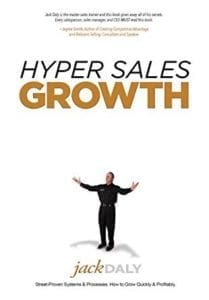
Different Breed Of Marketing And Sales: Hyper Sales Growth: Street-Proven Systems & Processes. How to Grow Quickly & Profitably
Tell me a little bit about your book.
I’m three in three years and the one that I started with is called Hyper Sales Growth, which is the one that we sold more of than anything. It’s on three different disciplines. One is on culture. Creating the right environment where the people who work in the company don’t begrudgingly each morning get up and have to go to work but jump out of bed excited about going to work, how to create that kind of a culture. The second topic in the book is all about sales management, which is recruiting, training, coaching, building and developing out of sales force. If anyone wants to build a hyper growth company, a very fast growing revenue company, the key is to grow your salesperson in quantity and quality because no matter how good I am as a salesperson, there are only so many calls I can make and so many calls I can take and so many orders I can write. If I could teach ten people what to do what I do, they’ll support me collectively. My largest sales force was 2,600. If I have 2,600 salespeople on the street, even if I was the number one guy and left the company, it wouldn’t mean a thing to the company. The key is sales management. That’s the second section of the book. The third section of the book is sales. One of the systems and processes that had been proven to be effective in winning new customers and growing the ones you have and differentiating yourself from the competition.
I have a mantra. The mantra is sports teams are run better than most businesses. There isn’t a coach in any sport at any level that will consider putting their players on the field without a playbook. When I’m contacted by companies to help them take themselves to the next level, I say, “The best way to get this started is send me your sales playbook on how you’re currently doing it today,” and there are crickets on the phone because 98 out of 100 companies don’t have a sales playbook, which means every salesperson is making it up and doing it their own way. Figure out the best way to do things, incorporate it into a playbook and train and prepare your salespeople to be in the field selling at the optimal level. When I had 2,600 people, when we were operating in over 100 offices and every office I visited, I had the same speech. It said this, “There aren’t 2,600 best ways to sell this stuff. Figure out the best way and consistently do it across the company.”It’s amazing how often I hear this. I bring the playbook into a company and then the reception of the salespeople is, “I’ve been in this business for years. I have my own style.” I’m in Boston now. Can you imagine Belichick with the Patriots having a player saying, “I’ve got my own style”? I wonder how that will play in New England.
I understand what you’re saying. Doesn’t personality thought account? Can’t you have an argument for there are maybe few things that work?“This one may not work based on my personality but this one would.” Do you have to narrow it down to one best style?
No. Now, you’re in a really cool zone. There are things that are actions and systems and processes to be measured, but when we study the very best salespeople, one of the things to be recognized is the best salespeople are like chameleons and they morph into being more like the person they’re calling on. There’s a style appreciation that needs to be taught to salespeople that said, “If you’re going to be in front of someone who seeks a lot of proof and documentation and information and wants to know how it all works, it’s incumbent upon you to sell that way even if that’s not your style.” If they’re calling on someone like me who I don’t care how anything really works, I just want to know how I’m going to benefit, then you make this as short as possible, then make the call fifteen minutes or less and move on your merry way. I want those style appreciations and I want that stylistic difference out there on the marketplace. I’m going to show them how to do it systematically. In the contact management system of my salespeople, I want to style identity in the system next to the name of every prospect customer. Now, I have a system in process where I get on the phone and get out of the car and say, “Diane’s the driver. This is who I need to be.”
[Tweet “The best salespeople are like chameleons and they morph into being more like the person they’re calling on. “]I agree with you because I teach a lot of the same things. People have to stop focusing on what they’d like it to be and focus on what the other person would like it to be. You’ve got some great information. I’m sure everybody would love to know how they can get more. Can you share your website and how they can get your books?
All of the books are on Amazon. That’s usually the easiest for most people. They’re also available on our website. On our website, there are deals that are better than on Amazon. Our website is JackDaly.net. It is content rich and following the same thing, help my clients with the needs, opportunities and problems. We have a phone number at 888-298-6868. I have no problem sharing my individual personal email, which I address personally to everyone and that is Jack@JackDaly.net.
Thank you so much, Jack. It was so nice to have you on the show.
It’s my pleasure.
I want to thank Joel and Jack. What a great show. You both have such great energy. It made it so much fun. I hope all of you enjoyed as much as I did. Please come back for the next episode of Take The Lead Radio.
About Joel Comm:
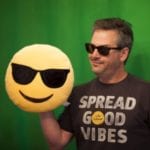
About Jack Daly:
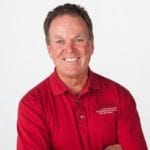
Important Links:
- Joel Comm
- Jack Daly
- BeLive.tv
- Crowdcast
- Internet Family Fun: A Parent’s Guide to Safe Surfing
- Joel Comm’s DVD box in Amazon
- Joel’s Forbes page
- Pull My Finger app
- iFart app
- Daily Show-Joel Comm
- Candace Payne
- Joel.live
- The Top 5 Scope
- LVPlaybook.com
- Hyper Sales Growth
- Jack Daly
- JackDaly,net
- Life by Design
- Jack Daly Amazon books
- Jack Daly’s books on website
- Jack@JackDaly.net

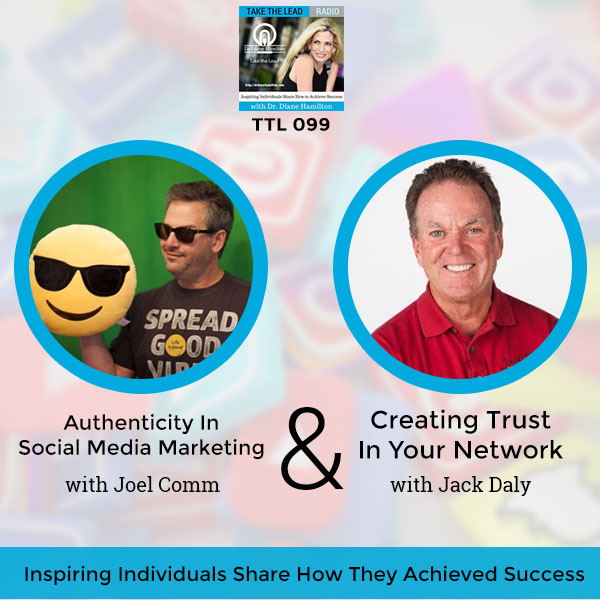
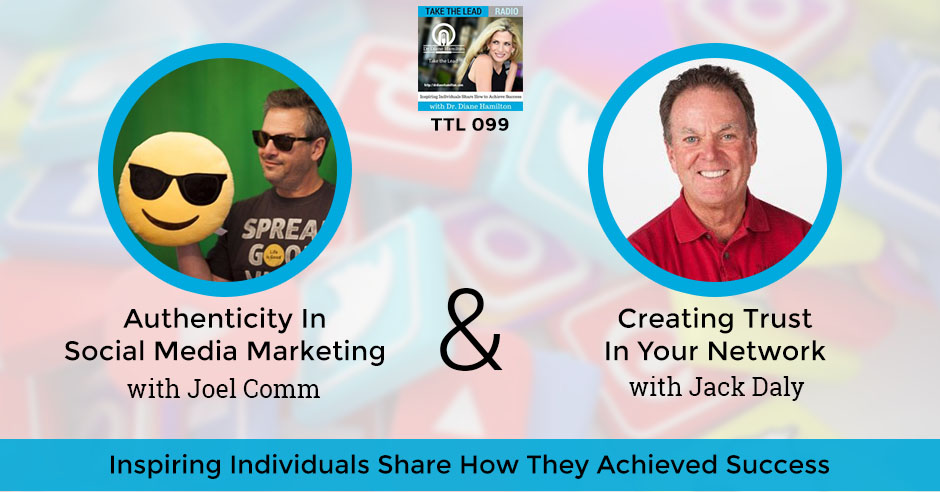

0 Comments